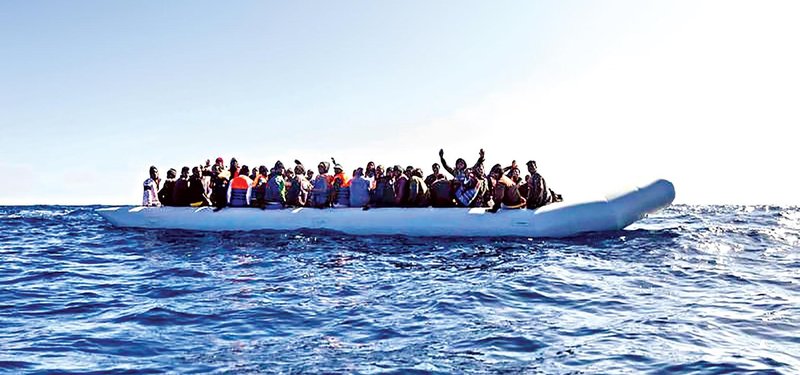Djibouti (SONNA) – A devastating maritime disaster has claimed the lives of 45 migrants after two boats sank in the Red Sea near Djibouti’s shores. The International Organization for Migration (IOM) confirmed the tragic event, which has left the international community in mourning.
The ill-fated journey began in Yemen, with the boats carrying a total of 310 people. The vessels were attempting to reach Djibouti when disaster struck. According to IOM, only 32 people have been rescued so far, leaving many families in anguish as they await news of their loved ones.
The ill-fated journey began in Yemen, with the boats carrying a total of 310 people. The vessels were attempting to reach Djibouti when disaster struck. According to IOM, only 32 people have been rescued so far, leaving many families in anguish as they await news of their loved ones.
The boats, heavily overloaded, faced treacherous conditions in the Red Sea. Survivors recounted the harrowing moments when water began flooding the vessels, leading to their eventual capsizing. The incident occurred near the Djiboutian coastal town of Obock, a known migration route for those fleeing conflict and seeking better opportunities in the Gulf nations.
This tragedy highlights the perilous journeys undertaken by migrants from the Horn of Africa, particularly from Ethiopia and Somalia, who risk their lives in search of safety and better livelihoods. The Eastern Route, which takes migrants through Yemen to the Gulf countries, remains one of the most dangerous migration corridors in the world.
The IOM, in collaboration with the Djiboutian Coast Guard, the National Gendarmerie, and local authorities, swiftly launched search and rescue operations. The survivors have been provided with food, water, first aid, and psychological support. Efforts are also underway to manage the deceased with dignity until their identities can be confirmed and their families notified.
Tanja Pacifico, Chief of Mission for IOM Djibouti, emphasized the need for increased support and funding to prevent such tragedies. “This migration corridor is among the busiest and most dangerous in Africa, yet it receives very limited attention and funding. More support is needed to prevent the loss of life and support countries like Djibouti,” she stated.
The identities of the deceased have not yet been released, adding to the grief and uncertainty faced by their families. This incident serves as a stark reminder of the human cost of migration and the urgent need for comprehensive solutions to address the root causes of forced migration.
As the world mourns this tragic loss, the international community must come together to ensure that such incidents are prevented in the future, and that migrants are provided with safe and legal pathways to seek better lives.





